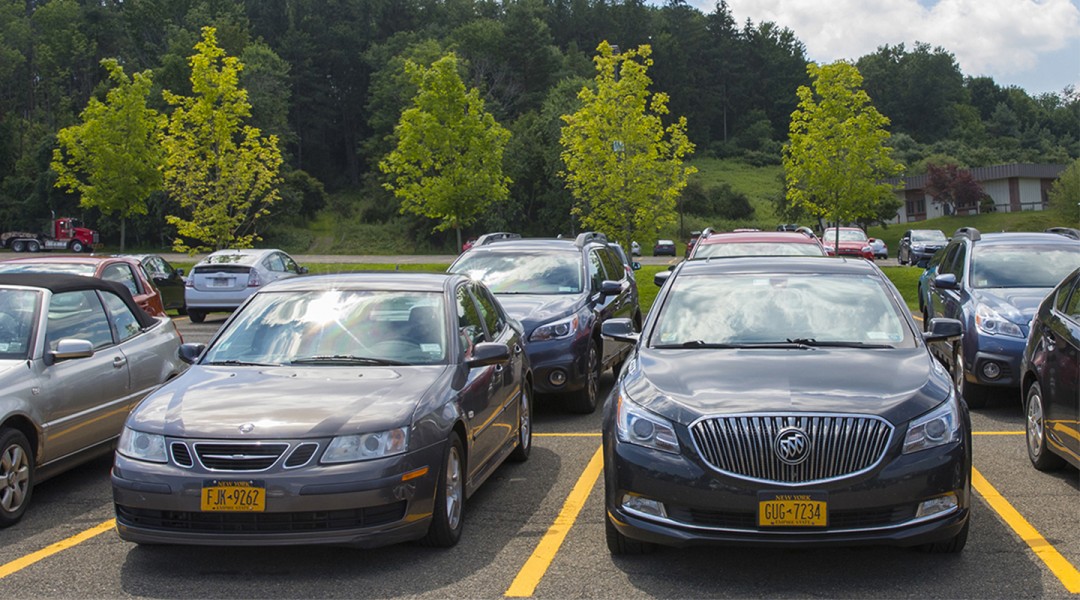License Plate Recognition (LPR) technology coming to campus
Decals and hang tangs no longer necessary

Transportation and Parking Services (TAPS) will integrate a new parking software in fall 2017 that utilizes License Plate Recognition (LPR) to improve the parking experience on campus.
So what is LPR? It’s a plate recognition technology that associates a parking permit to a license plate instead of displaying a sticker decal or hangtag. Susan Crane, director of Parking Services, sees the new technology as a benefit. “Decals will be eliminated and all permits will be virtually linked to a license plate,” Crane said. “Many universities and colleges are utilizing LPR and we believe it will have a positive impact on Binghamton University’s community as well.”
LPR will make purchasing a permit easier. “LPR will streamline the permit purchasing process as well as simplify day-to-day operations,” Crane said. All permits may be purchased online and confirmation will be emailed. Once a confirmation has been received, the permit is active. “This technology provides immediate permit verification, which will alleviate start-of-semester stress with no need to wait in lines at the Parking Services office or for a decal in the mail,” Crane said.
LPR will also be used to enforce campus parking. “As the University continues to grow, so does the need to improve parking operations,” Crane said. Students, faculty and staff will no longer need to affix decals to their vehicles or pay to have a lost or stolen decal replaced. “This technology will allow us to be much more efficient in what we do,” Crane said.
Parking Services will have LPR camera-equipped vehicles. “This camera will read license plates automatically and verify that a permit has been purchased against the LPR database,” Crane said. For the scans to work correctly, license plates must be visible from the drive lane. Vehicles from states that don’t require a front license plate, for example Pennsylvania, must be pulled into a space nose first. “If a license plate isn’t registered in the LPR system, isn’t visible for scanning or is damaged a vehicle will receive a citation,” Crane said. All citations will be sent via email as well as affixed to the windshield.
Along with LPR, TAPS will integrate its parking software. “This updated software will give more capabilities to the end user,” said Crane. Citation appeals and updated vehicle information may be submitted online. “If there is a need to modify a license plate or other vehicle information, you can now easily update this information from your online account, eliminating a trip to the Parking Services office,” Crane said. This also includes temporary vehicle license plate information.
TAPS has been working with T2 Systems, the parking software company, and will be ready to move forward for the fall semester. “Combining our parking software and implementing LPR will allow for a seamless parking operation,” Crane said. “Our end goal is to create a stress-free parking experience and our combined parking software as well as LPR will allow us to become more community-centered and focus on our end users’ experience.”
For additional information regarding virtual permits or LPR, visit the TAPS website or email TAPS.
